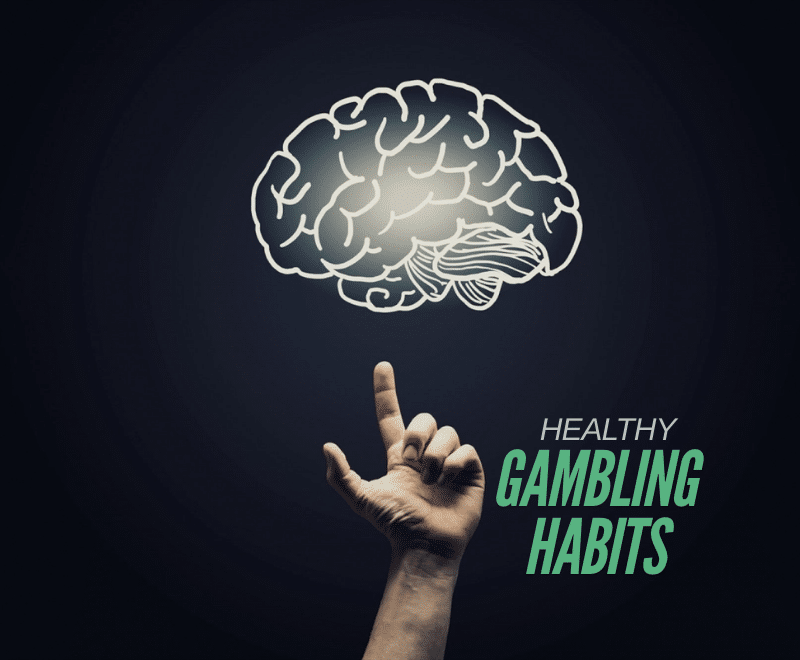
Gambling is an age-old activity enjoyed by millions across the globe. Whether it’s the thrill of the roulette wheel or the buzz of placing a sports bet, gambling appeals to the human need for excitement and unpredictability. However, gambling is a paradox—it offers fun and entertainment but also carries the risk of addiction and financial loss for many players.
In this article, we’ll explore the psychology behind why people gamble, how gambling affects the brain, the causes of gambling addiction, warning signs of problem behavior, and practical ways to develop healthy gambling habits.
Despite knowing that “the house always wins,” many people continue to gamble. The driving force behind this seemingly irrational behavior lies in psychological, social, and emotional factors.
Human brains are hardwired to seek novelty and excitement. Gambling provides an unpredictable outcome, triggering the brain’s reward system even when losses occur. This uncertainty creates a thrill, which encourages people to keep playing in the hope of a win.
For some, gambling offers a temporary escape from daily stress, anxiety, or personal issues. The immersive environment of casinos and online games provides a mental break, allowing players to focus on the present moment rather than their worries.
Many people gamble as a way to socialize, either with friends or with new acquaintances at casinos, poker tables, or bingo halls. In online spaces, interactive games allow players to connect through live dealer games and shared experiences, enhancing the social appeal.
While gambling should not be seen as a reliable way to make money, the possibility of financial gain draws many players in. Professional gamblers focus on skill-based games like poker, but others hope to win big through games of chance, despite the risks.
Gambling activates the brain’s reward system by releasing dopamine, the neurotransmitter responsible for pleasure and motivation. Similar to how substance addiction works, frequent exposure to gambling can lead to changes in the brain’s chemistry.
When you gamble, your brain releases dopamine, creating feelings of joy and excitement. Over time, the brain adapts to these elevated dopamine levels, reducing the pleasure you feel from everyday activities. As a result, players may gamble more to experience the same level of excitement, leading to compulsive behavior.
The unpredictability of gambling outcomes reinforces addictive behavior. Known as variable reward schedules, this concept explains why random wins are more effective at building addictive patterns than consistent rewards. Each time a player wins, it strengthens the belief that another win could be just one bet away.
Gambling addiction arises from a combination of biological, psychological, and environmental factors. Below, we break down these causes:
Some individuals may be biologically predisposed to addictive behavior due to genetics or brain chemistry.
Psychological issues such as stress, depression, and anxiety can lead individuals to use gambling as a coping mechanism. Key psychological causes include:
The environment in which an individual grows up can significantly influence gambling habits.
Compulsive gambling, also known as pathological gambling, refers to the inability to resist the urge to gamble despite negative consequences. It’s a serious mental health disorder that can disrupt relationships, careers, and financial stability.
Compulsive gamblers often experience:
Recognizing the early signs of problem gambling is critical for intervention. Here are key indicators:
While gambling can be a fun and social activity, it’s important to adopt healthy practices to avoid addiction. Here are practical tips for responsible gambling:
Decide how much money you can afford to lose and never exceed that amount. Many online platforms offer tools to set daily or monthly limits, which can help control spending.
Gambling should be a recreational activity, not a coping mechanism. Avoid gambling when experiencing emotional distress to prevent impulsive decisions.
Engage in other enjoyable activities, such as sports, art, or reading, to prevent over-reliance on gambling for entertainment.
If you set aside a budget, divide it into smaller amounts to avoid exhausting it too quickly. This strategy will help you extend your playtime and keep the experience enjoyable.
Keep a record of your gambling activity. Monitoring wins and losses helps you recognize patterns and make informed decisions about when to stop.
Avoid the habit of borrowing money for gambling, as it can lead to financial stress and dependency. Play only with what you can afford to lose.
If gambling begins to interfere with your life, seek professional support. Helplines, counseling, and support groups can offer guidance for overcoming problem gambling.
Gambling offers excitement and entertainment but can also lead to serious problems if not managed carefully. Understanding the psychology behind gambling and the potential risks of addiction is essential for staying in control.
By setting limits, engaging in other activities, and being mindful of emotional triggers, players can enjoy gambling as a form of entertainment without crossing into harmful territory. If you or someone you know is struggling with gambling addiction, don’t hesitate to seek support—it’s never too late to regain control.
Support
Copyright © 2021 LUCKSHOTS ALL RIGHTS RESERVED